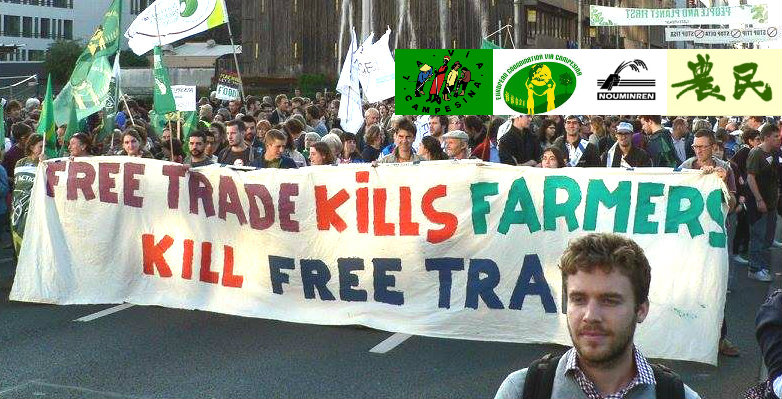Press release
(Brussels: July 1, 2022) The European Commission concluded negotiations on a free trade deal with New Zealand on Thursday 30th of June. The European Commission is talking about a deal that “contains unprecedented sustainability provisions and that takes into account the interests of EU producers of sensitive agricultural products”.
But for the European Coordination of Via Campesina (ECVC), the voice of peasant’s farmers in Europe, this deal is still based on the obsolete trade paradigm, in which agricultural products are used in exchange with other commodities, disregarding the climate crisis and the income crisis European farmers are facing. With this additional free trade agreement the Commission loses all credibility in its proposals for the European Green Deal and the F2F by continuing to prioritize the agro-export business and the elites that benefit from it over the necessary changes that farmers, citizens and the planet need.
It is well known that New Zealand has much lower production costs than Europe for some animal products, such as milk, sheep and beef meat, which tend to depress world market prices. Opening new markets with New Zealand will impact even more the agricultural price crisis and farmers’ income crisis in Europe. Furthermore, New Zealand does not apply environmental, animal welfare and climate standards in the same way as European farmers do.
“How can such an agreement that includes sensitive agricultural products which can be sustainably and agroecologically produced in our territories be compatible with the Paris Agreement? Today, such kinds of agreements do not make any sense anymore” says Andoni García Arriola member of the coordinating committee of ECVC. “Agricultural trade should be considered as a sensitive sector and dealt separately from other trade commodities. The priority should be the construction of market regulation mechanisms that allow farmers everywhere in the world to get a fair income for producing for local sustainable food systems.”
“In the context of the current international food crisis and in order to reach the Farm to Fork objectives the EU should instead be engaging at an international level to promote a new Global Multilateral Framework for Executing International Trade, based on Peoples’ Food Sovereignty principles and per the UN Declaration on the Rights of Peasants and Other People Working in Rural Areas (UNDROP)”, says Morgan Ody, General coordinator of the peasant international movement La Via Campesina. For more information on La Via Campesina’s position, you can read this statement following the WTO negotiations here.
Contacts :
ECVC office: press@eurovia.org
Morgan Ody, ECVC Coordination Committee, +33 626 97 76 43 – FR, EN
Andoni García Arriola, ECVC Coordination Committee, +34636451569 – ES, EUS
Antonio Onorati, ECVC Trade Working Group, +39 3408219456 – EN, FR, IT
This post is also available in Français.

